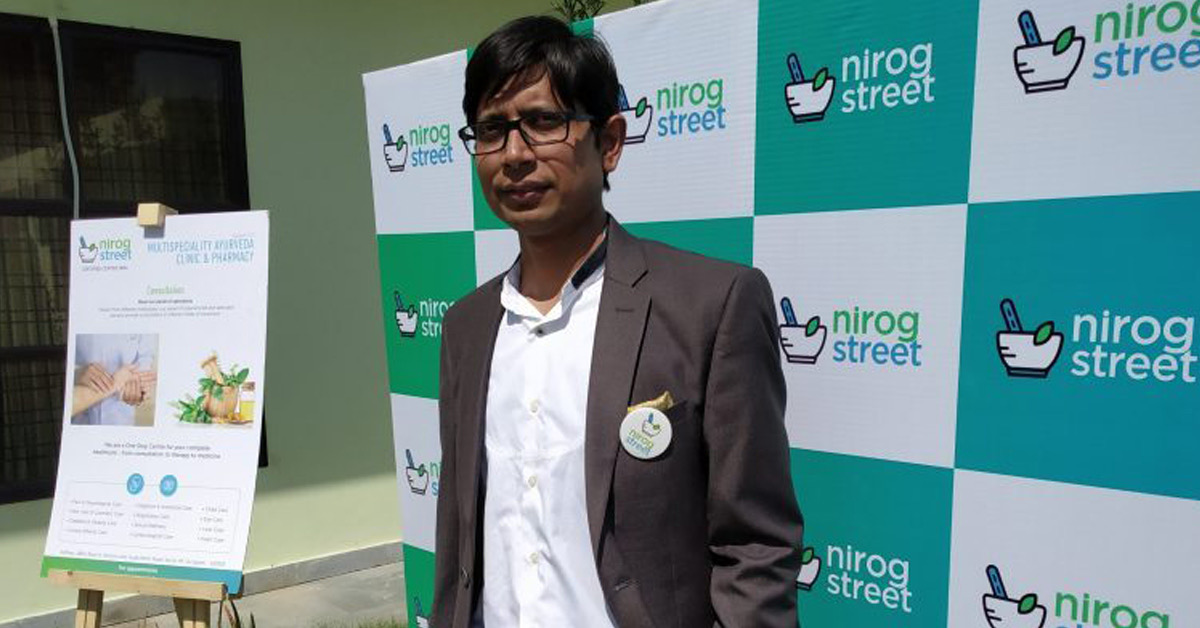Gurugram, Haryana-based NirogStreet, an Ayurveda healthtech platform on Thursday, 8 October 2020, raised $2 million in Pre -Series A funding by Wavemaker Partners, Los Angeles headquartered venture capital firm and Amand Ventures, an investment holding company focusing on early-stage startup investments.
The startup will utilise the capital for deeper penetration, strengthen technology platform, digitise supply chain, and bring offerings for Ayurvedic doctors.
Founded by Ram Kumar and Ram N Kumar in 2016, the company raised $300,000 from Japanese venture fund Spiral Ventures in 2018.
Speaking of the development, Ram N Kumar, said,
“Ayurveda has demonstrated its leadership in the time of Covid-19 and we played an important role in making Ayurveda mainstream. The recent investment will be employed to strengthen the technology platform and strengthen the supply chain to ensure delivery of quality medicines to Ayurveda doctors and clinics,”
NirogStreet claims that it is getting huge response from the deeper pockets of the country as only 30 percent of the doctors on its platform are from tier 1 cities and remaining 70 percent belongs to tier 2 and 3 cities. The company’s platform is powered with its tele-Ayurveda offering lets Ayurvedic doctors consult patients across the globe. It has also enabled the doctors to dispatch ayurvedic medicines on time to their patients using NirogStreet’s e-commerce platform worldwide.
From a wide network of 200 NirogStreet certified Ayurvedic clinics, the company aims to expand to 5000 clinics by 2022 to offer Ayurvedic treatment exponentially.
Paul Santos, Managing Partner of Wavemaker Partners, in a statement, said,
“There are 600 thousand certified Ayurveda doctors but millions of unqualified practitioners. This leads to low trust and satisfaction among patients. NirogStreet has been doing work in mainstreaming Ayurveda discipline not just in India but across the globe,”
Ayurveda facts
India is known for its traditional medicinal systems – Ayurveda, Siddha, and Unani. These herbal medicines after modern science and treatments are also called as alternative or traditional medicines which are used by around 60 percent of the world’s population, even in the developed countries where modern medicines dominate. In western countries, approximately 40 per cent of people use herbal medicine for the treatment of various diseases.
According to Hindawi, a commercial publisher of scientific, technical, and medical literature, In India, around 25,000 effective plant-based formulations are used in traditional and folk medicine. More than 1.5 million practitioners are using the traditional medicinal system for health care in India. It is estimated that more than 7800 manufacturing units are involved in the production of natural health products and traditional plant-based formulations in India, which requires more than 2000 tons of medicinal plant raw material annually.
There are currently about 250,000 registered medical practitioners of the Ayurvedic system, as compared to about 700,000 of the modern medicine. In India, around 20,000 medicinal plants have been recorded; however, traditional practitioners use only 7,000-7,500 plants for curing different diseases. The proportion of use of plants in the different Indian systems of medicine is Ayurveda 2000, Siddha 1300, Unani 1000, Homeopathy 800, Tibetan 500, Modern 200, and folk 4500. In India, around 25,000 effective plant-based formulations are used in traditional and folk medicine.
India’s healthtech startup scene at glance
There is no denying to the fact that healthtech has always been a game-changer for the Indian startup ecosystem and the skyrocketing demand for healthcare amid the COVID-19 crisis led to the evolution of healthtech startups in India.. There are around 3,225 healthtech startups in India and the domain is expected to reach $370 billion by 2020.





